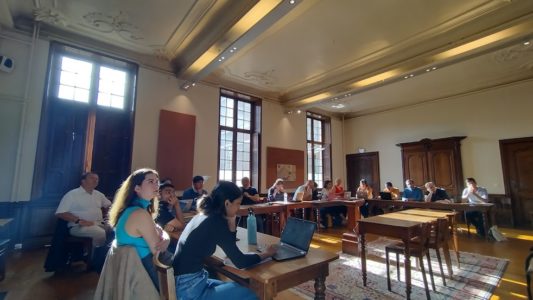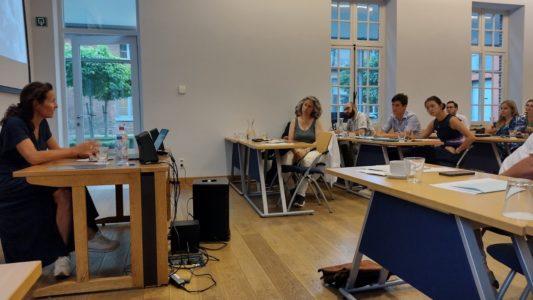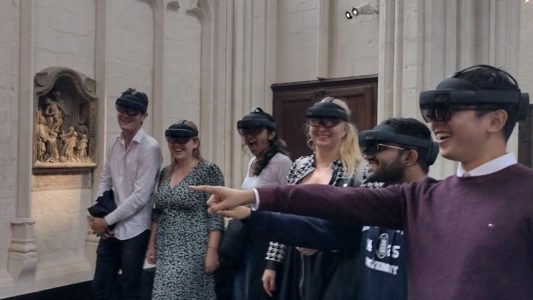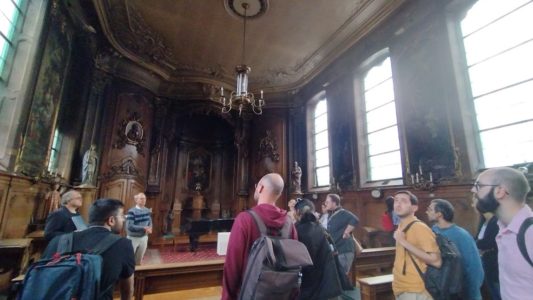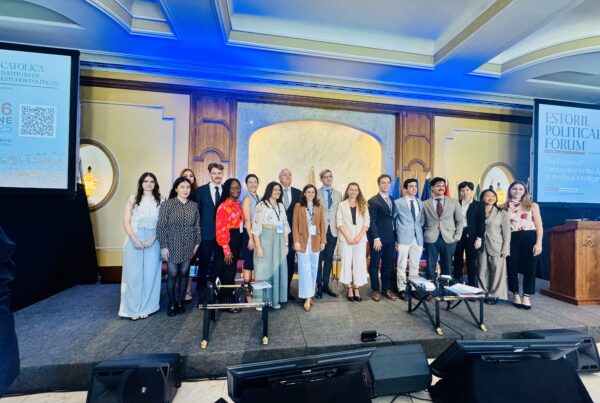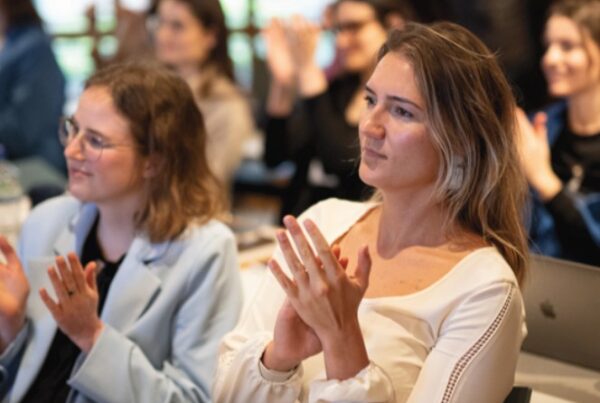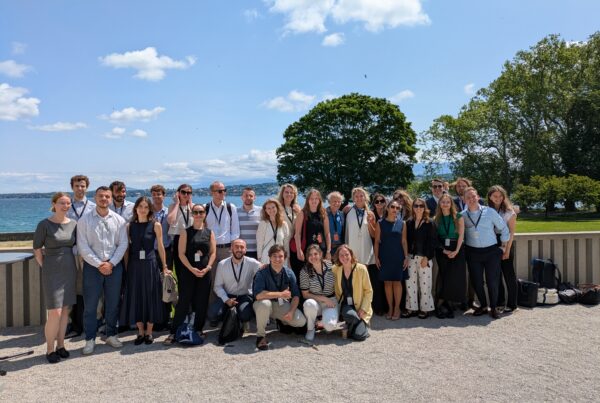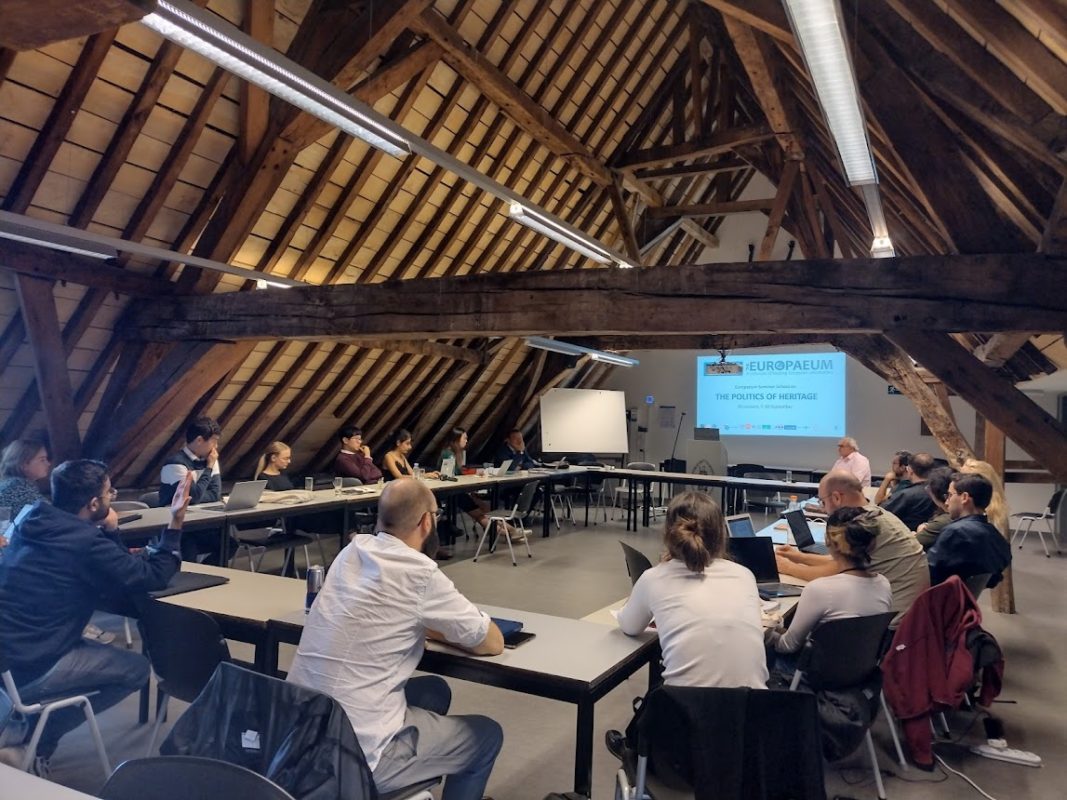
Report by Lily Green, Support Officer at The Europaeum
On the 5 to 10 of September the Europaeum held its Summer School, hosted by KU Leuven. Its overarching theme was ‘The Politics of Heritage’.
The Summer School programme was a mixture of expert talks, student paper presentations and heritage visits to relevant museums. The attendees were a diverse group coming from across Europe, Asia and the Middle East. In total students came from 8 of the 18 universities in our network (The University of Bologna, Charles University, Freie Universität Berlin, KU Leuven, Leiden University, Ludwig-Maximilians-Universität München, Pompeu Fabra University and The University of Oxford). There was a friendly, respectful, and open-minded atmosphere among the students, who were highly-engaged and contributed well throughout the week
The group also proved to be multidisciplinary with students holding academic backgrounds in art history, law, modern history, international studies, cultural studies, political science and economics, area studies, intercultural heritage, ancient history, heritage and museum studies, anthropology, modern languages, architecture, and media studies.
The week consisted of 4 keynote speakers Dr Evelien Campfens (Leiden University), Dr Erik de Maaker (Leiden University), Dr Franziska Davies (Ludwig-Maximilians-Universität München), Prof. Laura van Broekhoven (Oxford University, Pitt Rivers Museum) and Prof Geert Vanpaemel (KU Leuven), as well as an expert roundtable featuring Prof. Bart Raymaekers (KU Leuven), Dr Luisa Santos (Universidade Católica Portuguesa) and Prof. Bert Demarsin (KU Leuven).
The real highlight of 4 student paper panels covering two broad topics: Legacies of Colonialism and Heritage and Conflict. The first panel saw Aya Hussein (Leiden University) present her paper on ‘The Ife Head: A Reconsideration of Legality and West African Art’ and Shahal Khoso (Pompeu Fabra University) present on asymmetries in federalism as a postcolonial legacy. The second student panel focused on Spanish and Catalonian colonialism with Isabel Bedoya Palop (Pompeu Fabra University) discussing the end of the Spanish colonialism in the Antilles and Gerard Llorens (Pompeu Fabra University) presenting his paper on the reckoning of the history of slavery in Catalonia. The third panel turned to the theme of conflict and heritage with Sebastian Ambros (Ludwig-Maximilians-Universität München) discussing the Hagia Sophia, Rigels Lenja (Ludwig-Maximilians-Universität München) examination of the loss of historical artefacts during the Yugoslav Wars and Dina Brode-Roger’s (KU Leuven) presentation on industrial heritage in Svalbard. The final panel, continued the theme of conflict and heritage with Maria Kovalchuk (Ludwig-Maximilians-Universität München) discussing the intersection of civil society and memory politics in contemporary Ukraine and James Hua (The University of Oxford) on the cultural heritage of ancient and modern refugees.
The Europaeum is very grateful to KU Leuven for their support in hosting this successful summer school.
Shahal Khoso
Pompeu Fabra University, Barcelona
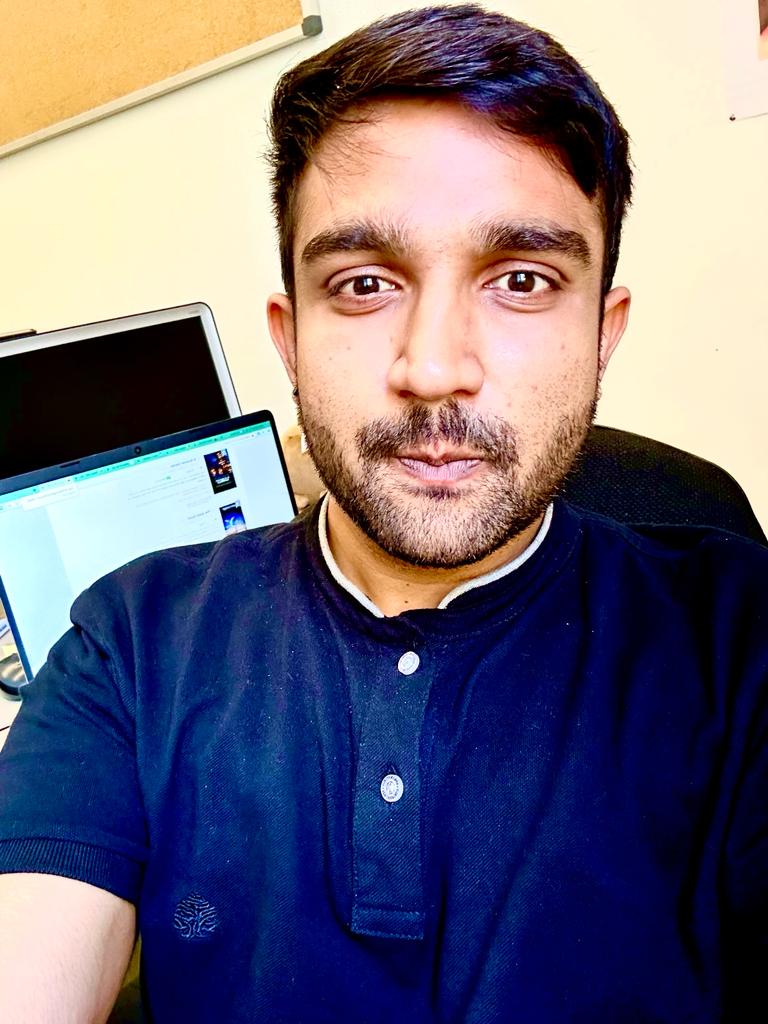
‘The Europaeum, for me, was more than just a summer school. It was more of a unique experience – where likeminded people from around the world come together to learn and unlearn, in the best possible way. From the organization of the event, to the execution – everything was above par. The treatment and reciprocity from the Europaeum to students attending was not just unprecedented, but also promising – that in the future, more thinkers and students will benefit from the numerous events that the organization hosts. Most importantly, as a student from the Global South, many would think that the Europaeum would be very ‘Eurocentric’ like many other organizations from the Global North. However, that was not the case. It was a very welcoming and inclusive experience, to a point, where the Euro- in the Europaeum is more about understanding Europe’s entangled relationship with the rest of the world, while also creating new reciprocal dimensions to take this relationship to new heights, bouldering on positivity, understanding our differences and how to overcome them. I recommend the Europaeum and its events to every student who sees this note. It will be an experience worth cherishing, and one you will remember very fondly.’

